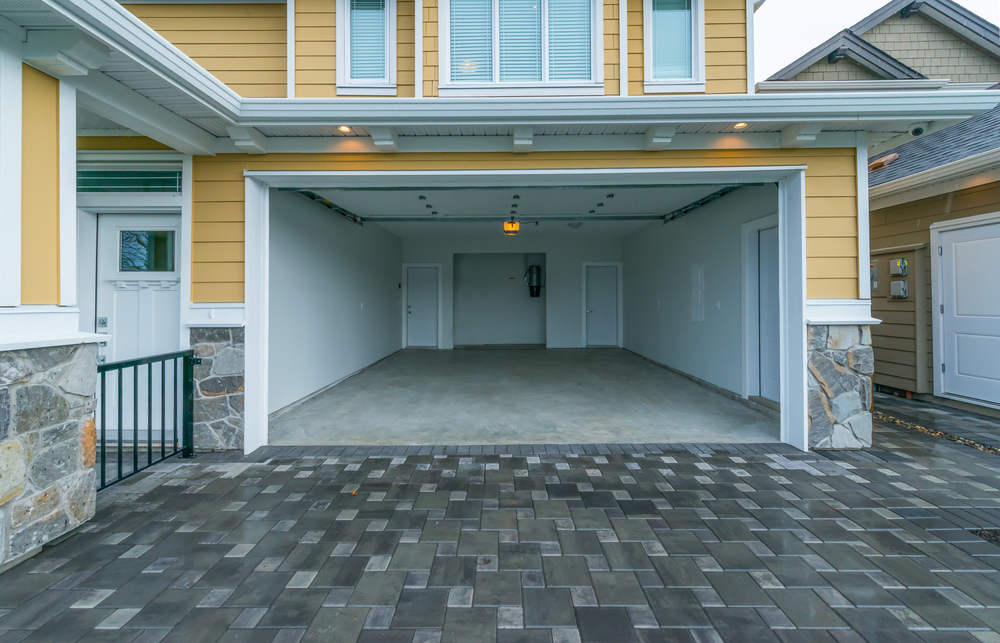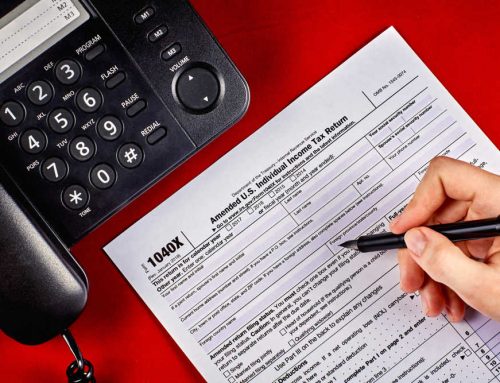
Are you claiming a tax deduction for your home office? Should you include your garage space when calculating your business-use percentage? Home-office tax deductions require a deeper look at the garage and other reusable spaces to see if they’ll be positive or negative factors in the home-office calculation. Many factors need to be taken into account before being able to answer the question. This blog will discuss what elements are needed for you to be able to include the garage as a home office space.
Usable Home Office Space
So what counts as usable space for a home-office tax deduction? Let’s go over an example. Ronald Culp earned an office deduction of 78% of his home. That’s a nice percentage, but what’s compelling is how the court looked at Ronald’s home in deciding that 78% home-office business use.
Ronald ran a document printing business from his home where he exclusively used:
- The garage
- The finished basement
- Two and a half of the six rooms on the first floor
- The attic
The IRS stated that Ronald could not include the garage or attic in his calculations because they were not “usable spaces.” If the IRS won the case, Ronald’s home office would have accounted for 64% of the house. However, Ronald included both the attic and garage in his square footage calculations to arrive at a business use percentage of 94%. The court did not like this calculation either, so they calculated it themselves. Here’s how the court computed the 78% business use of Ronald’s home:
- The court included the garage since they couldn’t find a basis in law or fact for excluding it. The garage also contained integral elements for Ronald’s business: two printing presses and a large paper cutter.
- The utility room in the basement where the water heater and furnace were located failed the exclusive business-use standard for the home-office deduction since it counted as a personal space.
- The 1,128 square foot attic contained only 100 square feet of usable space. So the court ruled that the other 1,028 square feet were not functional. It was inaccessible due to the slope of the roof and the lack of flooring.
Case Summary: While the printing took place in the garage, the IRS stated that it was not usable space. However, the taxpayer and court agreed that the space should be included in the calculations. Will this be true for the next scenarios that will be mentioned below?
Garage Not Counted
Gene Moretti rented a house with 5.5 rooms that consisted of:
- Two bedrooms
- A den
- Living room
- Dining room
- Half-kitchen
The court noted that the house also had a garage. Gene claimed the business use of the den, living room, dining room, and garage. The court ended up stating that the den was the only space that met the regular and exclusive use requirements for qualifications as an office in the home.
The court calculated the business percentage using the number-of-rooms method. They calculated that one room (the den) of the 5.5 rooms represented the business-use percentage of the home. They ignored the garage even though Gene tried to claim it as office space.
IRS Publication 587 on the home-office deduction has this example:
- John uses one room in his home for business
- His home has ten rooms, all around equal sizes
- His office is 10% (1 divided by 10) of the total area of his home
- His business percentage is 10%
IRS Regulations state the following:
“If the rooms in the dwelling unit are approximately equal size, the taxpayer may ordinarily allocate the general expenses for the unit according to the number of rooms used for the business purpose. The taxpayer may also allocate general expenses according to the percentage of the total floor space in the unit that is used for the business purpose.”
Case Summary: As you can see with this case, neither the IRS publication nor the IRS regulation mentions the garage.
Deducting a Business Loss on the Sale of a Business Garage
Regardless of the location of the attached/detached garage, any loss on sale of the business-garage part of a house is deductible. The allocation of the sales proceeds from the house should be based on the same percentages that the homeowner uses for the business-use percentage.
Example: Fred’s percentage business use of his home is 12%. He sells his home for $325k and allocates $39k (12%) to the business art. The business part of his home has an adjusted basis of $54k. He has a deductible loss of @25k on the sale of the business part of his home ($39k net sales proceeds minus $54k adjusted basis).
The 88% personal part of the sale is subject to the personal-residence rules.
Case summary: On the office inside the dwelling itself, Fred got the best of both worlds:
- If he gets a gain on sale, he pays no tax on the business part of the gain to the extent of the $250k/$500k exclusion
- If he has a loss on the sale of the house, he will have a tax deduction for the business part of the loss.
Takeaways
If you claim a deduction for an office in a home that includes the business use of your garage, there’s no doubt that the garage is part of the calculation. No rules exist that say you have to give garage space less weight than other spaces. Thus, if you include the garage in your calculations, it’s best if you count it in full.
If you use the number-of-rooms method and want to include your garage, you could dictate that the garage represents two rooms. If you do not include the garage in your calculations, you might want to take the IRS position from the Ronald Culp case. The attic with the missing floor was not usable. The garage with the concrete floor and no heat should produce a similar result. What’s interesting with these court cases is that the IRS often excluded the garages while the court is usually eager to include them. If you are in disagreement over your tax return with the IRS, this should help work to your advantage. The science with tax law is simply finding cases, procedures, rulings, and publications that support your position. This is the best way to defend your position since neither the law nor regulations offer any clear advice. At MFI Works, we know these topics can be complicated, so don’t hesitate to contact us if you have any questions. To schedule a free initial business strategy session, click here.


